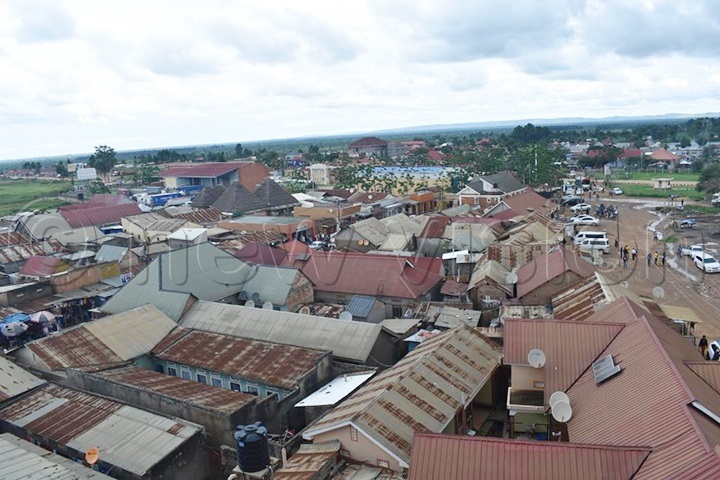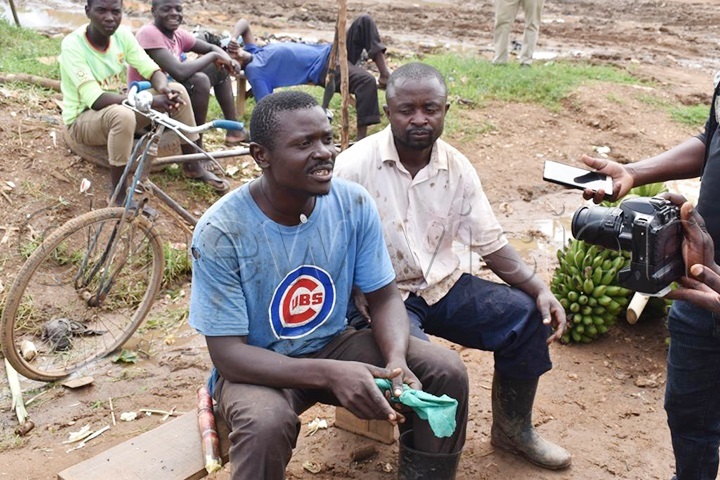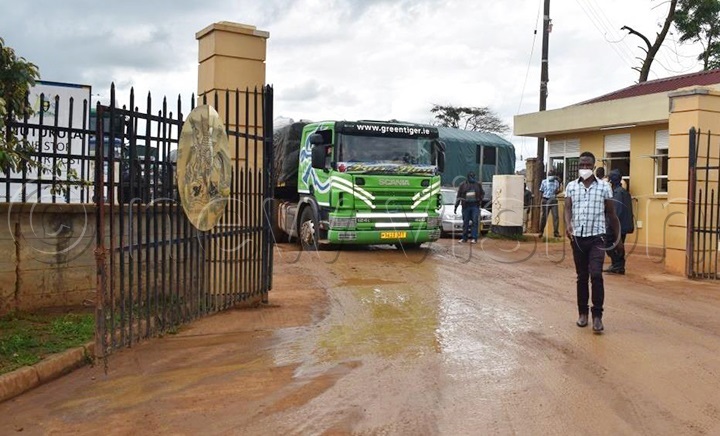Uganda govt drugs sold in Tanzania
Dec 29, 2020
The rampant crime is attributed to poor monitoring in state hospitals and lower health centres, increased corruption and lack of a policy to protect whistle-blowers.

HEALTH | CRIME
Lifesaving prescription drugs provided for free in Uganda's state hospitals are being smuggled into Tanzania.
This not only put people's lives at risk but robbing the government of much needed tax revenue, a joint investigation by different Civil Society Organisations, has found.
The rampant crime is attributed to poor monitoring in state hospitals and lower health centres, increased corruption and lack of a policy to protect whistle-blowers.
According to findings by Kakunuto Network For Indigenous Voluntary Associations (KANIVA) and Transparency International (Uganda), the health workers at the centre of the crime operate in a more complex way that's difficult to notice.
They take advantage of the loophole within the hospitals' monitoring system to steal government drugs including ARVs, malaria and other prescription drugs.
The investigation also found out that the crime is rife at Mutukula, a Uganda-Tanzania border post located in Kyotera district in Southern Uganda.
Here, the essential drugs including ARVs are easily traded due to security gaps widened by porous borders.
Agnes Namusiitwa, the Programmes Coordinator-KANIVA, said they have been investigating the crime since last year.
She said the organisation established that theft and reselling of ARVs and other drugs is increasingly becoming a huge source of wealth and income for a network of unscrupulous government health workers.

A tin of ARVs costs between sh50,000 (approx. USD13.06) and sh70,000 (approx. USD19.03) and it is mostly the rich Tanzanian businessmen, women and truck drivers who order for them, according to Namusiitwa.
"The health workers now involve middlemen from either country in the transitions. This means they are hard to trail and bring to book," she said.
A health worker at Mutukula HCIII, told us that senior health authorities sometimes legitimately request bigger quantities of medical supplies from the National Drug Authority (NDA).
Hence, it becomes difficult to notice when they take a portion to their private stores.
The theft of lifesaving drugs is felt by the sick but government coffers as well, and the crime fuels Illicit Financial Flows (IFFs), which Uganda is grappling with.
According to a US based think tank Global Financial Integrity (GFI) Illicit financial flows can be defined broadly as movements of money and value from one country to another that are illicitly earned, illicitly transferred, and/or illicitly utilised.
GFI 2018 report, titled a Scoping Study of IFFs Impacting Uganda states that capital being transferred is considered illicit when: First, the act of transferring it across countries is illegal (money laundering, cash smuggling).
Second, it is the result of an illegal act (drug trade, tax evasion).

Lastly, it is used to finance an illegal activity (organized crime, terrorism).
Tax evasion is partially enabled by corruption, particularly in the public sector, which reinforces the incidence of IFFs, states the report.
Simon Kakande, a banana trader operating at the border, said the government drugs are freely traded within the no-man's land separating Uganda and Tanzania.
"In the no-man's land, we are not taxed. We do business freely without interference from either country," he said.
GFI also stated that tax evasion from imports and exports alone cost Uganda $6.7 billion dollars from 2006 to 2015.
Nearly $3 billion more was lost to errors and omissions in balance of payments over the last decade.
Dr Edward Muwanga, the District Health Officer, confirmed the theft of prescription drugs in the district saying it has left the majority of innocent Ugandans suffering.

Much as it may be difficult to bust the whole network in a short time, Muwanga said they will slowly crackdown on the crime as they strengthen cross-border relations.
In September, Muwanga explained, they arrested a group of eight people including health workers, store managers and senior hospital employees over missing government drugs worth sh19.5m (approx. USD5346) and a refrigerator.
"We got concerned over complaints from patients and caretakers over drug stock out just a week after the government had restocked the drugs including ARVs," he added.
David Kizito, the Programmes Officer, Transparency International (Uganda) attributed the crime to lack of enabling laws to protect whistle-blowers.
As a result, people fear to report such corruption and wastage of public resources.
Kizito noted that sophisticated networks generally collaborate with security operatives to ease their plans.
Emmanuel Ainebyoona, the Ministry of Health Public Relations Officer, said the government introduced an electronic monitoring system to follow up on the dispensation of drugs, the number of patients and conditions suffered.
The system is to ensure no health worker, whatsoever, takes advantage of the drugs at the expense of the taxpayers.
Although clever people use different means to beat the system, Ainebyoona explained that the system has helped to minimise theft of drugs.
"When the teams go to these health centres they are able to establish the inconsistencies in the drug dispensation and action is taken," he said.
In the meantime, the Border Intelligence Authorities said they have intensified operations to crackdown on illegal trade across the Uganda-Tanzania border.
This story was produced by The New Vision. It was written as part of Wealth of Nations, a media skills development programme run by the Thomson Reuters Foundation.
